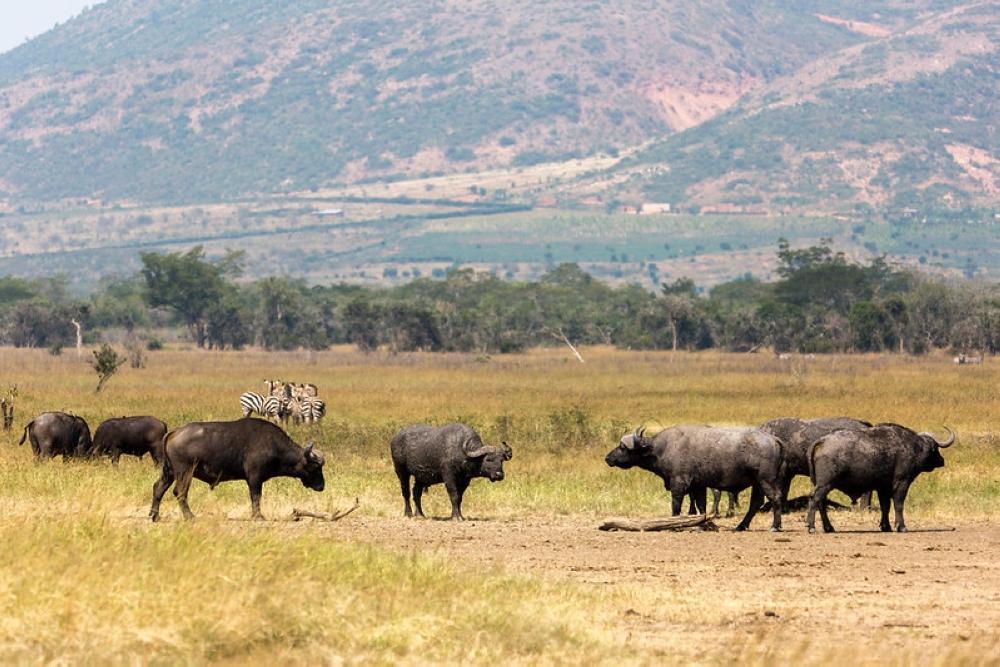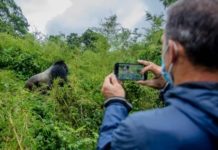Africa-Press – Rwanda. Rwanda has announced plans to establish a regional conservation academy on an eight-hectare site near Akagera National Park, The New Times has learnt.
The conservation education hub aims to strengthen wildlife protection efforts and boost environmental education across the region, according to the Rwanda Development Board (RDB).
A partnership agreement with the African Parks Network to establish the academy was approved during a Cabinet meeting held on September 15, and the final signing is due later in the month.
The initiative is expected to serve as a centre for research, training, and collaboration on conservation practices, reinforcing Rwanda’s growing reputation as a leader in sustainable environmental management in Africa.
Eugene Mutangana, Head of the Conservation Department at the RDB, told The New Times that there are significant benefits to establishing a conservation school at the entrance of Akagera National Park, which is managed by African Parks, a non-profit conservation organisation.
“The academy will be established at the southern gate of the park, positioning Rwanda as a regional conservation hub,” he said.
The signing of the agreement is expected to take place on September 30.
“Thereafter, construction of infrastructure and development of the necessary systems will take roughly one year. We expect to welcome the first cohort around 2027,” he explained.
Mutangana added that Rwanda will hold a 49 per cent stake in the training hub, while the rest will be held by African Parks.
“Our contribution includes the 8 hectares of land and granting students full-time access to Akagera National Park for their practical work,” he said.
The academy, he said, would further cement Rwanda’s reputation as a thought leader in conservation and natural resource management.
“It enhances Rwanda’s soft power, attracting recognition and influence within African and global conservation circles.”
While the academy will serve trainees from across Africa, Rwandan park managers, rangers, and community leaders will also benefit from access to high-quality, practical training.
“This will create a pipeline of skilled local professionals, ready to manage Rwanda’s expanding network of protected areas,” he added.
Economic and tourism benefits
Mutangana stated that hosting the academy would attract professionals, experts, and students, contributing to Rwanda’s economy through accommodation, transport, and other services.
“It diversifies Rwanda’s conservation-related tourism brand, adding an educational and training component to the existing ecotourism attractions.”
The academy will bring together conservation practitioners from diverse African ecosystems, encouraging knowledge-sharing and innovation. The official emphasised that Rwanda will be able to adopt best practices to improve the management of Akagera, Nyungwe, Gishwati-Mukura, and Volcanoes national parks.
The initiative, he said, also strengthens Rwanda’s relationship with African Parks and other international conservation funders.
“It could attract new investment and donor support, not only for the academy but also for Rwanda’s broader conservation agenda.”
Community and youth engagement
The conservation training hub, he noted, will inspire young Rwandans to pursue careers in conservation.
“Local communities could also benefit through employment, service provision, and exposure to new livelihood opportunities linked to conservation,” he said.
Jean Paul Karinganire, Funding and Reporting Manager at Akagera National Park, said the new agreement builds upon existing partnerships, including one with African Parks running until 2030.
The 10-year partnership between the Rwanda Development Board (RDB) and African Parks has driven the ecological and economic revival of Akagera National Park in Rwanda’s Eastern Province.
In 2020, Rwanda and African Parks also signed a 20-year agreement for Nyungwe National Park, ensuring the sustainable management of the country’s largest forested area.
Akagera National Park is also playing a key role in a continent-wide campaign to restore rhino populations, as African Parks launches a $2 million fundraising initiative to support the translocation of 2,000 rhinos from South Africa to secure habitats across Africa.
African Parks currently manages 19 national parks and protected areas in 11 countries on the continent.
For More News And Analysis About Rwanda Follow Africa-Press






